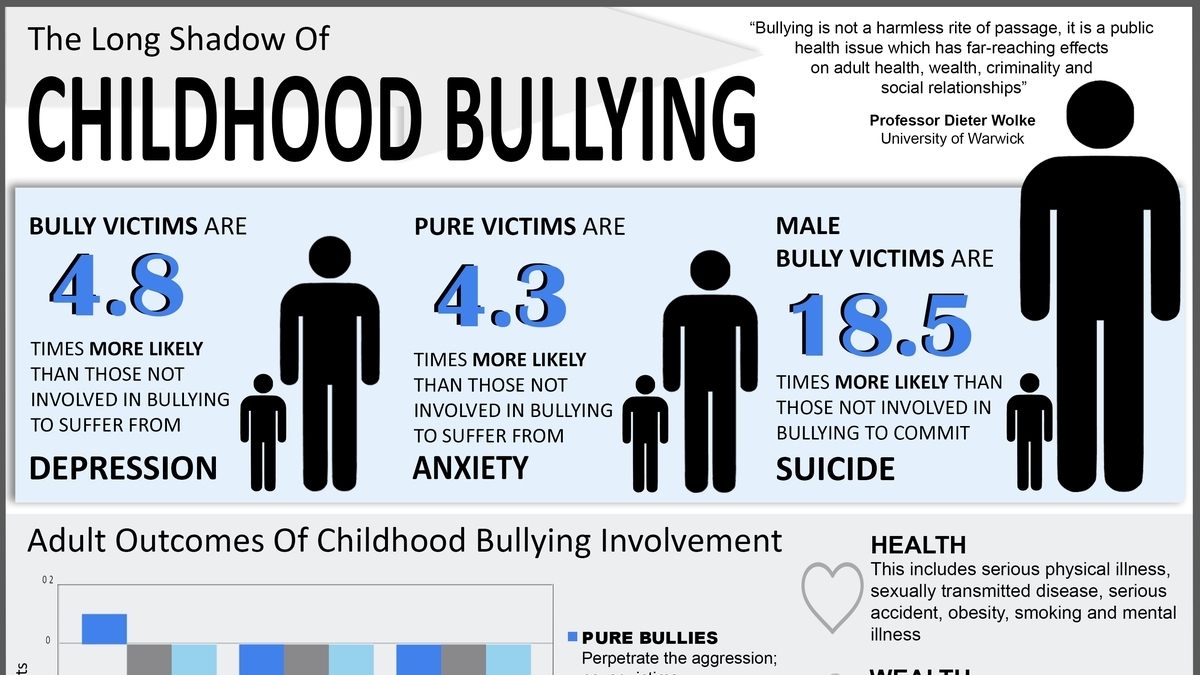
Childhood bullying is a pervasive issue that continues to plague our schools and communities, leaving lasting scars on the mental health of the victims. Recent studies have shone a spotlight on the profound impact of childhood bullying on the mental health of teenagers, particularly those identifying as LGBTQ. These studies underscore the urgent need for evidence-based interventions to address bullying, fostering trust, and preventing emotional distress among teenagers.
The Trust Deficit: A Bully’s Lasting Impact
A comprehensive study led by researchers from UCLA Health and the University of Glasgow has unearthed a disturbing correlation between childhood bullying and significant mental health problems in late adolescence. The study found that teenagers who developed a strong distrust of others due to bullying experienced a markedly higher risk of major mental health issues. The study utilized data from 10,000 children in the United Kingdom, establishing that adolescents who were bullied at age 11 and developed significant interpersonal distrust by age 14 were around 3.5 times more likely to grapple with clinically significant mental health problems by age 17.
While the study also assessed the impact of diet, sleep, and physical activity, it found that only interpersonal distrust was linked to a higher risk of experiencing mental health issues. Dr. George Slavich, Professor of Psychiatry and Biobehavioral Sciences at UCLA, and Dr. Dimitris Tsomokos, a researcher at the University of Glasgow, co-authored the study, emphasizing the need for evidence-based interventions to counteract the negative mental health impacts of bullying.
When Bullying Becomes Biased: The Heightened Risk for Marginalized Groups
In a parallel study conducted by the University of Minnesota, it was discovered that youth with LGBTQ identities and those from marginalized social positions experienced elevated levels of emotional distress when subjected to bias-based bullying, such as racist, homophobic, or transphobic bullying. These findings accentuate the enhanced vulnerability of marginalized groups to the psychological damage inflicted by bullying, making the need for targeted interventions even more urgent.
Tackling the Issue: The Way Forward
While these studies highlight the severe impact of bullying, the silver lining lies in the pathway they provide to tackle this issue. Recognizing that distrust is a significant risk factor for mental health issues, schools and other institutions can develop strategies to foster trust and counteract the negative impacts of bullying. Evidence-based interventions, including counseling, peer support groups, and anti-bullying campaigns, can play a crucial role in this endeavor.
However, it’s important to note that these solutions must be inclusive and specifically designed to address the unique challenges faced by marginalized groups such as LGBTQ youth. Bias-based bullying requires interventions that not only counter bullying but also promote acceptance and inclusivity. In this way, we can hope to alleviate the emotional distress experienced by these teenagers and pave the way for a healthier, more accepting society.
With the right interventions and a proactive approach, we can help protect our children from the long-term impacts of bullying. Remember, every child has the right to grow up in an environment free from fear and full of trust. Let’s take a stand against bullying today for a brighter, healthier tomorrow for our children.
